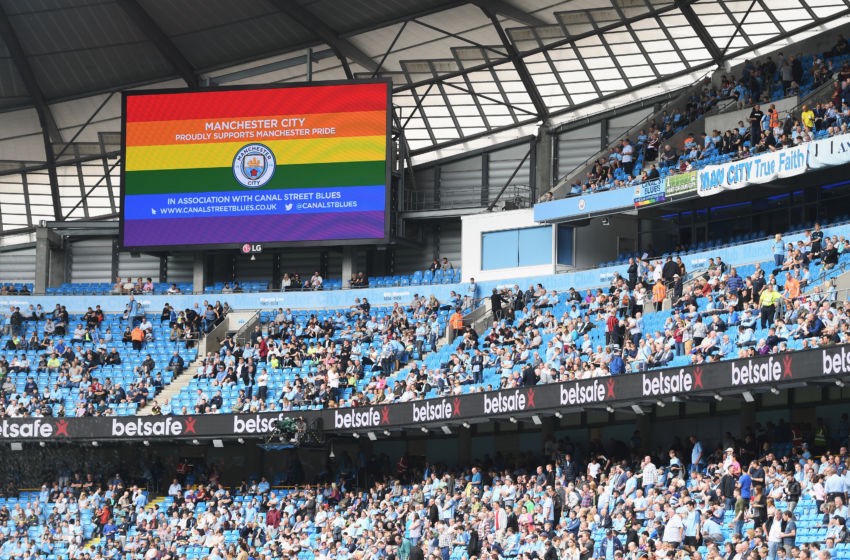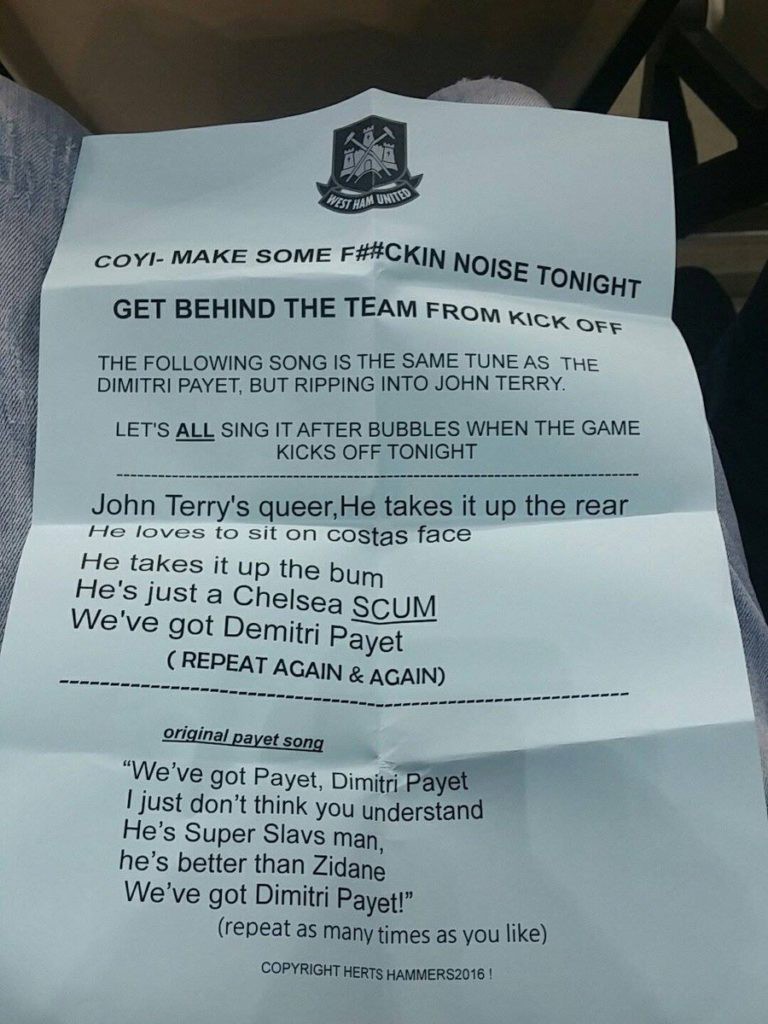It’s not enough to have 82% of fans say they have no issue with gay players on their team. Not close to enough.

England’s Football Association is once again engaging in discussions of when the first gay Premier League player will come out. This, generously, is a well-intentioned ritual that has the effect of building up the excitement for that eventuality so that said player will be dropped into a major media storm. Why, they ask, hasn’t a player come out?

Here are three facts that are somewhat at odds with one another, yet all true in this world: FA chairman Greg Clarke recently told MPs “I’m cautious of encouraging people to come out until we do our part of the bargain and stamp out abuse”; West Ham fans, seemingly at a loss for factually accurate and defensible ways to critique John Terry, distributed a homophobic chant sheet on Wednesday; a new poll commissioned by the BBC indicates that eight per cent of British football fans would stop watching their team if it had a gay player.
The inverse of eight per cent, as much of the press is only too glad to tell you, is a very large percentage. A majority of fans, these reports trumpet, are therefore totally fine with a player on the team being gay. That is not bad news insofar as the figure could be worse, but it is not in and of itself proof that soccer can currently offer a safe environment for all fans and players.
It is helpful, in cases like this, to think of homophobia as a virus. Huge swathes of the population are largely immunized; a small subset of people are virulent; and a portion of the population depends in part on herd immunity—the actions and protections afforded by others—to stave off attacks. Having 82% of fans state they have no issue with gay players does not protect those players. The eight per cent of fans who are willing to completely abandon their team because one of its players is gay, on the other hand, are taking a drastic position. These are exactly the sort of fans a player might fear. In that respect, majority support for gay rights cannot actually guarantee safety.
That most commonly cited item from the poll, however, flatters many of the respondents. “50% of football supporters ,” the BBC noted, “say they have heard homophobic abuse at matches.” Among other things, what this figure suggests is that a non-negligible portion of football supporters have heard homophobic abuse and done nothing about it. To be fair, some supporters may have been hurt or taken action, but the number of supporters who say they’ve witnessed abuse is out of proportion with any reported instances of confrontation.
It does not matter a great deal that most fans would continue watching their teams so long as they are unwilling to confront the more aggressive elements in their midst. Being willing to watch TV or go to a game is not a grand progressive gesture. It is, more accurately, an indication of how you feel privately. If eight per cent of fans were to stop attending games, their seats could likely be filled by new people. The reporting around the BBC’s poll celebrates a politic of symbolic inaction.
How one feels about people ultimately matters far less than how one treats them. You can grumble about marriage in the comfort of your house so long as you support full and equal rights. The same holds true with soccer. It isn’t enough to find gay players personally inoffensive; actual support involves actually engaging in meaningful cultural change.

